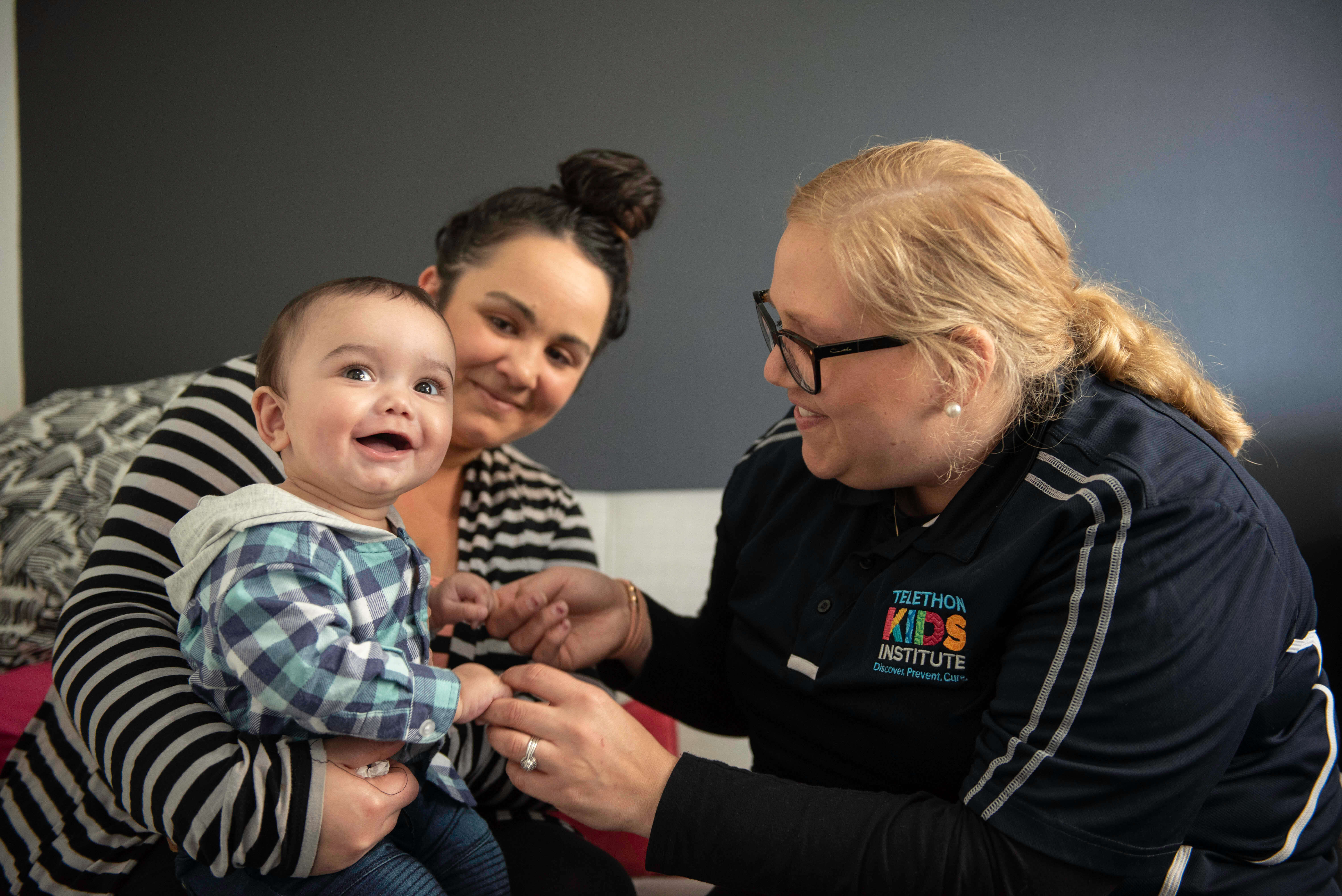Search
Showing results for "clinical trials"
Research
Quantitative assessment of airway dimensions in young children with cystic fibrosis lung disease using chest computed tomographyTo evaluate lung disease progression using AA dimensions on chest CT over 2-years in young CF patients longitudinally and compare to disease controls.

News & Events
Wesfarmers tops 2019 GivingLarge ReportThe major funder of the Wesfarmers Centre of Vaccines and Infectious Diseases based at The Kids Research Institute Australia has been recognised as Australia’s most generous giver.

Research
SGLT2 Inhibitor-Induced Sympathoexcitation in White Adipose Tissue: A Novel Mechanism for BeigingRecent preclinical data show that sodium glucose cotransporter 2 (SGLT2) inhibitors are able to reduce weight gain and induce beiging in white adipose tissue (WAT). We have previously shown that in neurogenic hypertensive Schlager (BPH/2J) mice, treatment with the SGLT2 inhibitor, Dapagliflozin, reduced blood pressure and prevented weight gain. Here we show that chemical sympathetic denervation achieved by systemic administration of 6-hydroxy-dopamine (6-OHDA) reduces body weight and the heightened sympathetic nervous system (SNS) innervation in WAT.
Research
Sun-health behaviours and attitudes towards sun safety amongst Australian teenagers: a qualitative updateThis study aimed to explore current attitudes towards sun protection, and sun-seeking behaviour among young Australian adolescents. It was done as part of a larger project aiming to develop a digital resource to support young people in making informed sun-health decisions.
Research
International links between Streptococcus pneumoniae vaccine serotype 4 sequence type (ST) 801 in Northern European shipyard outbreaks of invasive pneumococcal diseasePneumococcal disease outbreaks of vaccine preventable serotype 4 sequence type (ST)801 in shipyards have been reported in several countries. We aimed to use genomics to establish any international links between them.
Research
Quantifying the effectiveness of betaherpesvirus-vectored transmissible vaccinesTransmissible vaccines have the potential to revolutionize how zoonotic pathogens are controlled within wildlife reservoirs. A key challenge that must be overcome is identifying viral vectors that can rapidly spread immunity through a reservoir population.
Research
Stimulation of alpha-1 adrenoceptors may intensify cutaneous inflammation in complex regional pain syndromeAlpha-1 adrenoceptors are overexpressed in the epidermis of a subgroup of patients with complex regional pain syndrome. Activating α 1 -adrenoceptors in epidermal cells increases production of the proinflammatory cytokine interleukin-6, a mediator of inflammation.
Research
Optimising the use of linked administrative data for infectious diseases research in AustraliaIncreased collaboration and engagement across all sectors can optimise the use of linked data to help reduce the burden of infectious diseases
Research
Off-season RSV epidemics in Australia after easing of COVID-19 restrictionsHuman respiratory syncytial virus (RSV) is an important cause of acute respiratory infection with the most severe disease in the young and elderly. Non-pharmaceutical interventions and travel restrictions for controlling COVID-19 have impacted the circulation of most respiratory viruses including RSV globally, particularly in Australia, where during 2020 the normal winter epidemics were notably absent.
